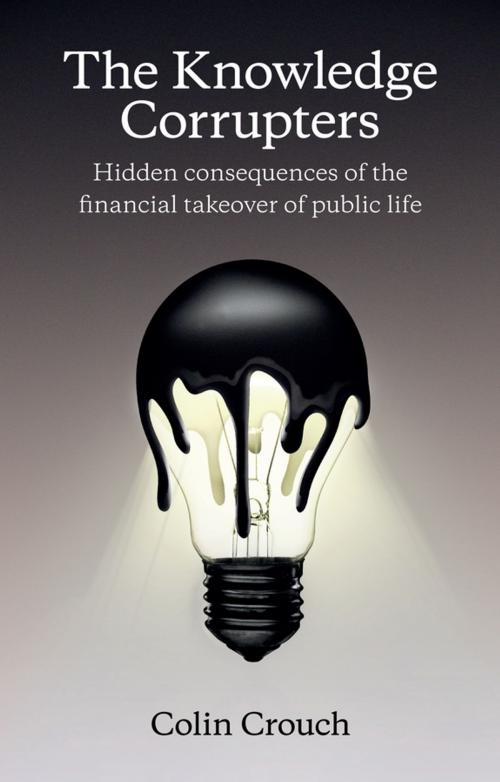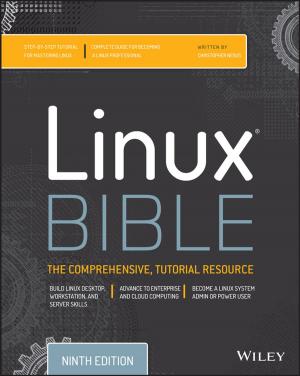The Knowledge Corrupters
Hidden Consequences of the Financial Takeover of Public Life
Business & Finance, Economics| Author: | Colin Crouch | ISBN: | 9781509502394 |
| Publisher: | Wiley | Publication: | April 25, 2016 |
| Imprint: | Polity | Language: | English |
| Author: | Colin Crouch |
| ISBN: | 9781509502394 |
| Publisher: | Wiley |
| Publication: | April 25, 2016 |
| Imprint: | Polity |
| Language: | English |
In principle the advanced, market-driven world in which we now live is fuelled by knowledge, information and transparency, but in practice the processes that produce this world systematically corrupt and denigrate knowledge: this is the powerful and provocative argument advanced by Colin Crouch in his latest exploration of societies on the road to post-democracy.
Crouch shows that executives in profit-maximizing corporations have incentives to ignore or distort knowledge, especially firms in the information business of the mass media themselves, as financial knowledge increasingly trumps the other kinds of knowledge that business needs. Firms also seek to take control of public knowledge and use it for their own ends, often at the cost of other stakeholders in society. Meanwhile the transfer of similar practices to professional public services undermines professional skills and ethics - especially when these services are out-sourced to the private sector. Attempts to extricate ourselves from these problems involve reshaping the complex and often conflicting relationships among citizens, professionals, managers and financiers.
This new book by one of the most incisive critics of contemporary Western societies will be of interest to a wide range of readers, from students to policy-makers and those who work in the public and private sectors.
In principle the advanced, market-driven world in which we now live is fuelled by knowledge, information and transparency, but in practice the processes that produce this world systematically corrupt and denigrate knowledge: this is the powerful and provocative argument advanced by Colin Crouch in his latest exploration of societies on the road to post-democracy.
Crouch shows that executives in profit-maximizing corporations have incentives to ignore or distort knowledge, especially firms in the information business of the mass media themselves, as financial knowledge increasingly trumps the other kinds of knowledge that business needs. Firms also seek to take control of public knowledge and use it for their own ends, often at the cost of other stakeholders in society. Meanwhile the transfer of similar practices to professional public services undermines professional skills and ethics - especially when these services are out-sourced to the private sector. Attempts to extricate ourselves from these problems involve reshaping the complex and often conflicting relationships among citizens, professionals, managers and financiers.
This new book by one of the most incisive critics of contemporary Western societies will be of interest to a wide range of readers, from students to policy-makers and those who work in the public and private sectors.















